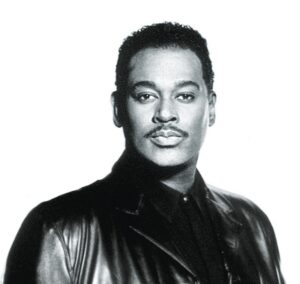When asked to name the Soul Music supergroups of the ’70s and early ’80s, folks tend to gravitate to familiar names such as Earth, Wind and Fire, the Spinners, the Commodores and the Isley Brothers. However, an argument can be made that five brothers from New Bedford, Massachusetts – Ralph, Tiny, Chubby, Butch and Pooch Tavares – created music as consistently strong as any of those groups during that period.
Arriving on the scene in 1973, Tavares released an album per year for a decade, and while the style of music on the discs varied, the quality stayed consistently high. The group’s breakout 1975 album, In the City, gave them their first Pop top 10 song (“It Only Takes a Minute”) and solidified their credentials as one of the leading traditional soul groups. So when, in 1976, their manager Brian Panella worked to team them with former Motown hitmaker, Freddie Perren (who had scored with other family acts the Jackson 5 and the Sylvers), it was a prescient move would alter the group’s direction from relatively predictable R&B to the leading edge of the burgeoning disco movement. However, the shift was a double-edged sword, as it led to the group’s most successful years (1976-79), but also brought an unfair “disco” label to Tavares that became toxic in the following decade as the backlash against that genre hit full force.
The first Tavares collaboration with Perren (working with lyricist Keni St. Lewis) was 1976’s Sky High, and it was a dandy. Following the solid, if somewhat staid, work with Lambert and Potter on their prior two discs, Tavares was now bringing a much hotter sound, with stronger beats and arrangements that forced their always great harmonies to new places. The first single release was “Heaven Must Be Missing An Angel,” an across the board smash that became the group’s signature song and stayed high on the charts for the entire Summer of that year. It was also the indicator of a musical sea change: it and the follow-up hit “Don’t Take Away the Music” were clocking in at over six minutes each, a dramatic contrast to the three-minutes-and-out approach that had dominated R&B for two decades, but an indicator of where dance music would (permanently) go. What was even more shocking was that that length of those songs not only worked on the dance floor, but also for listening. Perren kept things moving in the songs, changing movements and vocal arrangements, and making the fifth minute of each track as exciting as the first.
Despite the group’s notable movement toward dance music on Sky High, Tavares was solidly a soul music act, and Perren gave them some fine non-disco material on the non-radio tracks. “Bein’ With You” was perhaps the disc’s most infectious cut, a classic doo wop song masked in crisp production and another showcase of the harmonies that were always Tavares’ strengths. Just as enjoyable were the lush ballad “Wonderful,” where Ralph Tavares had one of his few leads, and “Guiding Star,” a soaring love song that has since been sampled by modern hip hop artists. The album included one cover, “To the Other Man,” a traditional soul ballad that had its heart in the right place but boasted lyrics a little too precious to hit the mark (“She said son you gotta give a heck / Promise you’ll always give respect / To the other man”).
For all of its significance, the Sky High album — like much of the Tavares catalog — was shockingly unavailable until its recent reissue by SoulMusic.com Records, 35 years after the album’s initial release. And listening to it now, the lush arrangements and infectious beats hold up amazingly well in 2011. What’s more, the reissue provides a reminder of just how great the Tavares brothers harmonized together, and how Perren displayed those wonderful harmonies in a way that hadn’t been heard on the group’s three prior albums. For those who only knew Tavares for their disco hits, Sky High shows just how much more the brothers brought to the scene and how over the course of a decade, they seemed to find the right producers and material at the right time, consistently providing some of the best soul and dance albums of the era. Highly Recommended.
By Chris Rizik









